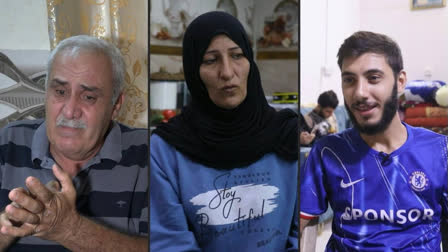Iraq: Israeli bombardment of Lebanon forced Mohammed Fawaz and his family to flee so often that they finally moved many kilometres (miles) away to find respite in central Iraq.
"Wherever we went, danger followed," the 62-year-old white-haired Lebanese man told AFP in the small town of Al-Qassem, sitting with his wife and daughter.
"That's when I thought of Iraq. It was the only way I could see to escape the danger after we saw death with our own eyes."
Opposite the small house where they now live, beyond a road busy with traffic, tall palm trees emblematic of Iraq's Babylon province stretch as far as the eye can see.
According to the United Nations refugee agency UNHCR, more than 19,200 Lebanese have arrived in Iraq since the escalation of hostilities in Lebanon.
The Baghdad government and Shiite religious authorities mobilised quickly to cope with the influx.
So did the Hashed al-Shaabi, an alliance of pro-Iran former paramilitary groups now integrated into Iraq's security forces.
Everyone turned out to welcome the refugees, helping them get to Iraq and also arranging accommodation.
The solidarity has highlighted the close ties between the Shiite communities of both countries.
Iraq had always welcomed Lebanese pilgrims visiting its famous Shiite shrines at Karbala and Najaf.
But now the Baghdad government, in which pro-Iran parties dominate, is also willing to signal it stands staunchly by Lebanon in the wake of daily Israeli attacks on Hezbollah strongholds there.
Fawaz is originally from south Lebanon, and moved to the southern suburbs of Beirut before later moving again to the outskirts of the capital.
'Invited guests'
"We fled from place to place," the father of four said, bursting into tears when he spoke of relatives back in Lebanon.
"My displaced brothers now live in schools in different areas."
His journey to Iraq included a coach trip across Syria.
After a stopover in the Sayyida Zeinab area south of Damascus, home to a Shiite shrine protected by pro-Iran groups, their entry to Iraq was coordinated by the Hashed al-Shaabi.
Fawaz hailed what he called "the best welcome" and Iraqi generosity, especially from his host, one of many Al-Qassem residents who have opened their doors to Lebanese refugees.
He praised Iraq's government for "treating us like invited guests, not refugees".
